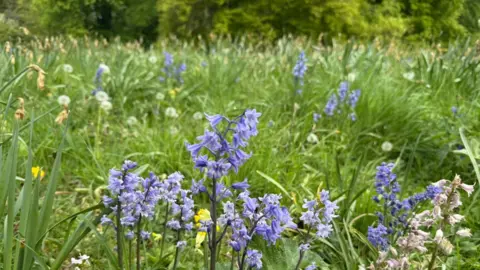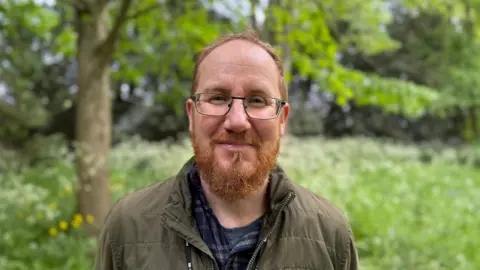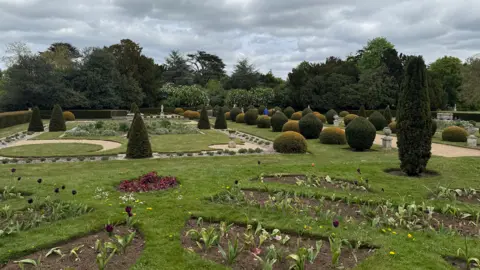Stately home supports No Mow campaign
 BBC
BBCGardeners at a National Trust property taking part in the No Mow May campaign have said they "can't praise it highly enough."
The national initiative urges people to let wildflowers bloom for the entire month, which creates a habitat for pollinators and a food source for birds and animals, according to Lincolnshire Wildlife Trust.
Belton House, near Grantham, is letting part of their grounds grow wild.
Damian Mitchell, head gardener, said: "It's a fantastic opportunity to see what you've got lying in the seedbank of your garden."

May marks the onset of summer and is the start of the wildflower season, national charity Plantlife said.
The gardening team at Belton House, near Grantham, said visitors love to see the contrast between the landscapes.
Mr Mitchell added: "We still have those lovely, manicured lawns that people expect at large houses, but then as they move out into the wild areas they see all of these fantastic blooms and insects.
"We don't have any negative comments, because people really get what we're doing."

A spokesperson from Lincolnshire Wildlife Trust said: "Increasing insect numbers and biodiversity is an important part of tackling climate change.
"Changing the way we treat our gardens is one of the best ways we can all get involved."
About 97% of flower-rich meadows have been lost since the 1930s, according to Plantlife.
Listen to highlights from Lincolnshire on BBC Sounds, watch the latest episode of Look North or tell us about a story you think we should be covering here.
